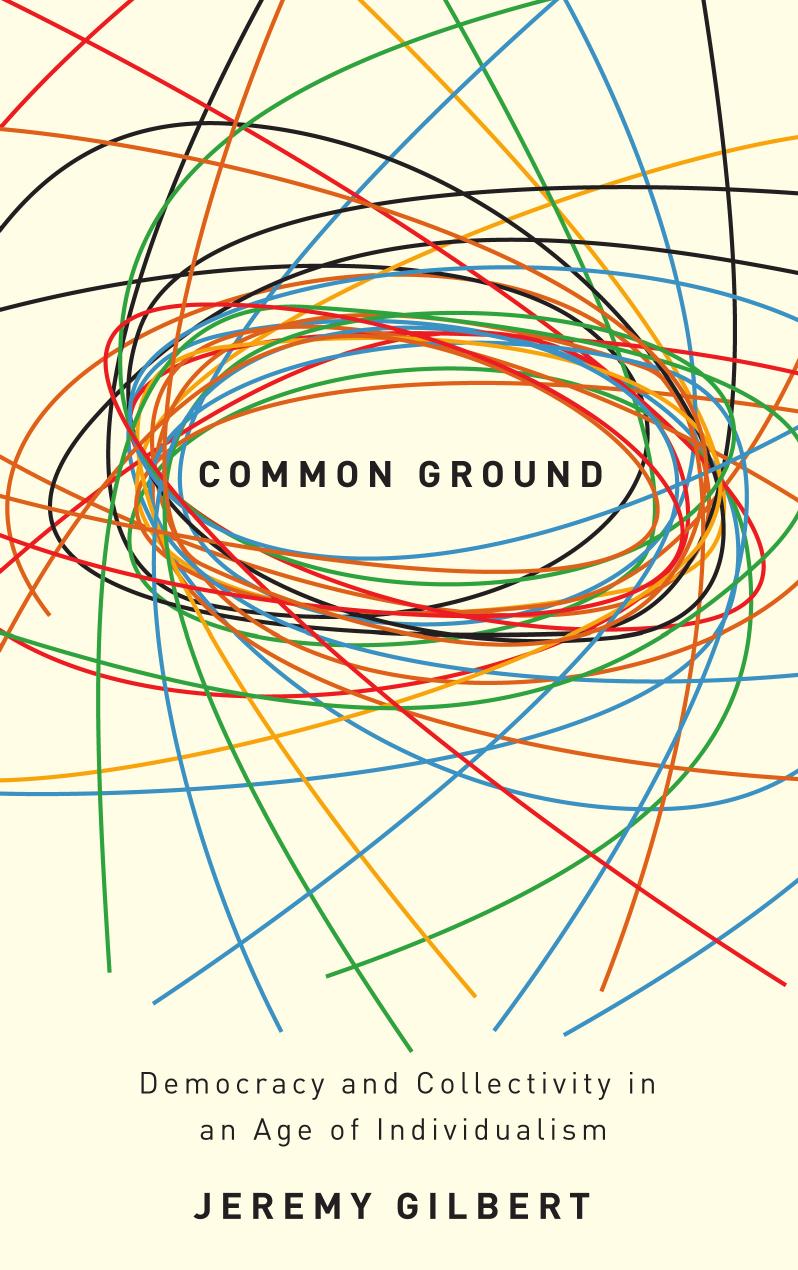Common Ground: Democracy and Collectivity in an Age of Individualism by Jeremy Gilbert

Author:Jeremy Gilbert [Gilbert, Jeremy]
Language: eng
Format: mobi, pdf
ISBN: 9781849649780
Publisher: Pluto Press
Published: 2013-11-07T23:00:00+00:00
The cyborg does not dream of community on the model of the organic family, this time without the oedipal project. The cyborg would not recognise the Garden of Eden; it is not made of mud and cannot dream of returning to dust. Perhaps that is why I want to see if cyborgs can subvert the apocalypse of returning to nuclear dust in the manic compulsion to name the Enemy. Cyborgs are not reverent; they do not re-member the cosmos. They are wary of holism, but needy for connection – they seem to have a natural feel for united front politics, but without the vanguard party. The main trouble with cyborgs, of course, is that they are the illegitimate offspring of militarism and patriarchal capitalism, not to mention state socialism. But illegitimate offspring are often exceedingly unfaithful to their origins. Their fathers, after all, are inessential. (1991: 151)
Haraway’s anti-Oedipal invocation of the technologically enabled post-human subject was controversial when she first wrote it in 1985. It seems far less so today, when, for all of their attendant problems, the revolutions in communications technologies which the Internet and mobile telephony have enabled have proved demonstrably valuable for many forms of social organisation and democratic activism (Hands 2011, Gerbaudo 2012). This is by no means to endorse a naively utopian view of the digital revolution. There are good arguments that some of its consequences are very troubling. Human brains which are over-saturated with electronic stimulation find it increasingly difficult to give concentrated attention to difficult tasks (Stiegler 2010, Davenport and Beck 2001). A growing critical consensus holds that the digitisation and de-historicisation of music culture in an age of instant access and low-fidelity has had a disastrous effect upon musical creativity, as musicians have lost the kind of dense, intense relationships with audiences and localities that they once had and as MP3 files (in audio terms, a vastly inferior medium to vinyl) become by far the most widely used playback format (Reynolds 2011). The capacity of huge corporations and state institutions to mine previously private data is an increasing cause of concern. And yet the very well-documented and developing use of such technologies by radical political groups is clear evidence that any simply anti-technological stance makes no sense in the contemporary epoch, even from an ecological perspective. Indeed, given the arguments already outlined in this section, we could say that it is important to understand that Haraway’s cyborg is the very contemporary figure of a viable eco-feminism, a feminism which understands its ecological context to be not just an idealised Earth, but the mechanosphere itself. Haraway’s own subsequent trajectory, producing a series of inspiring and fascinating studies of the post-human condition (Haraway 2008) and inspiring an entire genre of deconstructive ‘cyber-feminism’ (Shaw 2000; Zylinska 2001, 2002; Weinstone 2004), certainly bears out this claim.
It is important to acknowledge that the idea of a complex relationality organising relationships amongst humans and between humans and non-humans is by no means an invention of social and cultural theory.
Download
Common Ground: Democracy and Collectivity in an Age of Individualism by Jeremy Gilbert.pdf
This site does not store any files on its server. We only index and link to content provided by other sites. Please contact the content providers to delete copyright contents if any and email us, we'll remove relevant links or contents immediately.
| Anarchism | Communism & Socialism |
| Conservatism & Liberalism | Democracy |
| Fascism | Libertarianism |
| Nationalism | Radicalism |
| Utopian |
The Secret History by Donna Tartt(19088)
The Social Justice Warrior Handbook by Lisa De Pasquale(12190)
Thirteen Reasons Why by Jay Asher(8910)
This Is How You Lose Her by Junot Diaz(6887)
Weapons of Math Destruction by Cathy O'Neil(6280)
Zero to One by Peter Thiel(5802)
Beartown by Fredrik Backman(5754)
The Myth of the Strong Leader by Archie Brown(5507)
The Fire Next Time by James Baldwin(5446)
How Democracies Die by Steven Levitsky & Daniel Ziblatt(5219)
Promise Me, Dad by Joe Biden(5153)
Stone's Rules by Roger Stone(5088)
A Higher Loyalty: Truth, Lies, and Leadership by James Comey(4964)
100 Deadly Skills by Clint Emerson(4925)
Rise and Kill First by Ronen Bergman(4789)
Secrecy World by Jake Bernstein(4753)
The David Icke Guide to the Global Conspiracy (and how to end it) by David Icke(4720)
The Farm by Tom Rob Smith(4513)
The Doomsday Machine by Daniel Ellsberg(4490)
